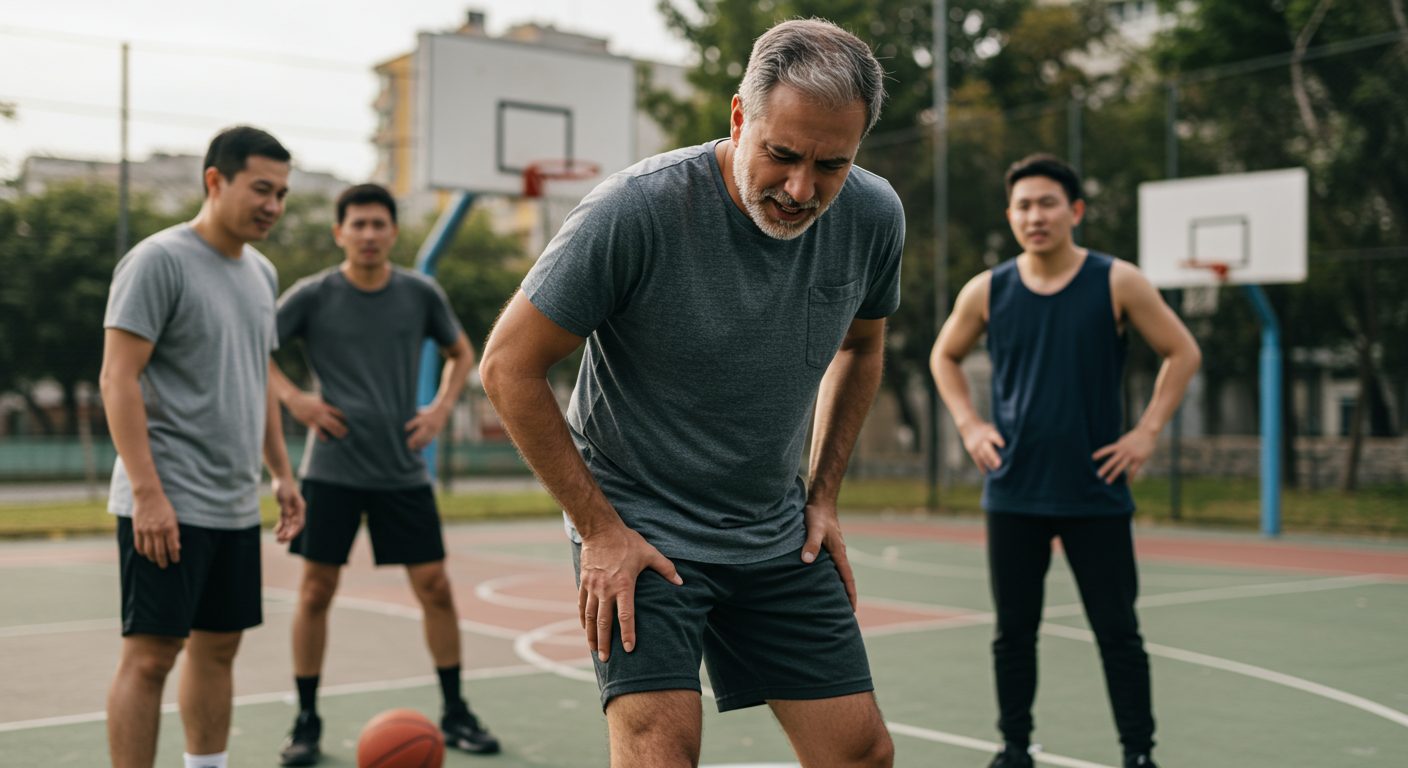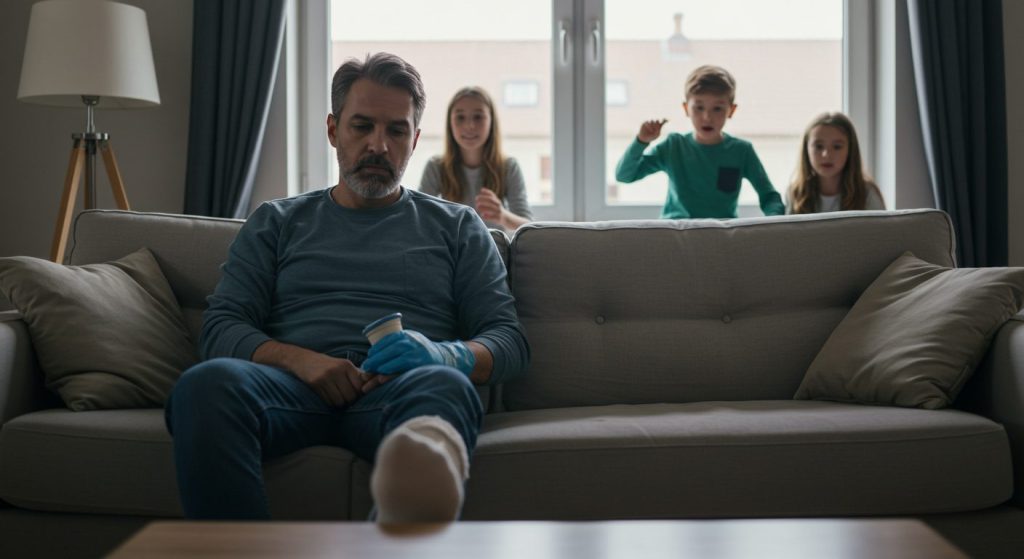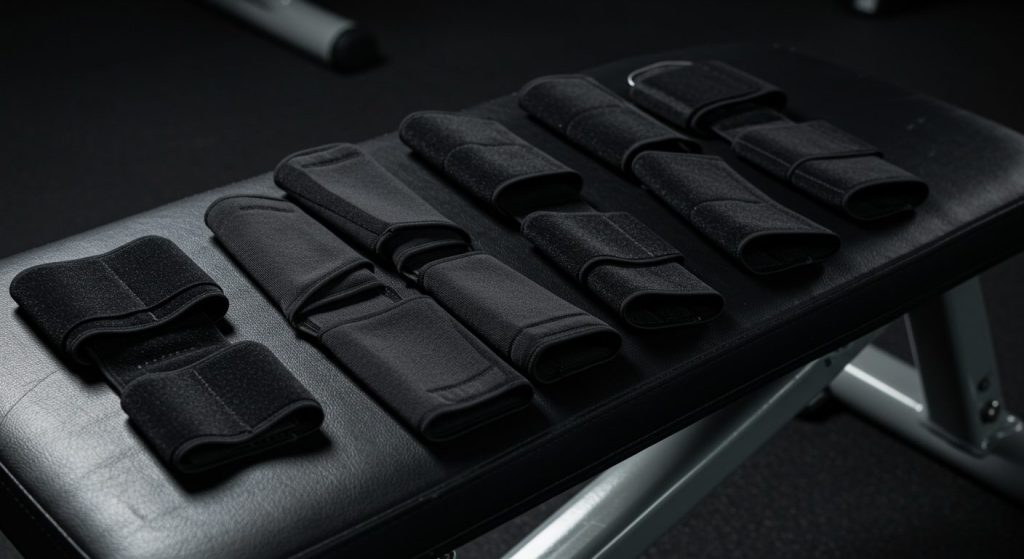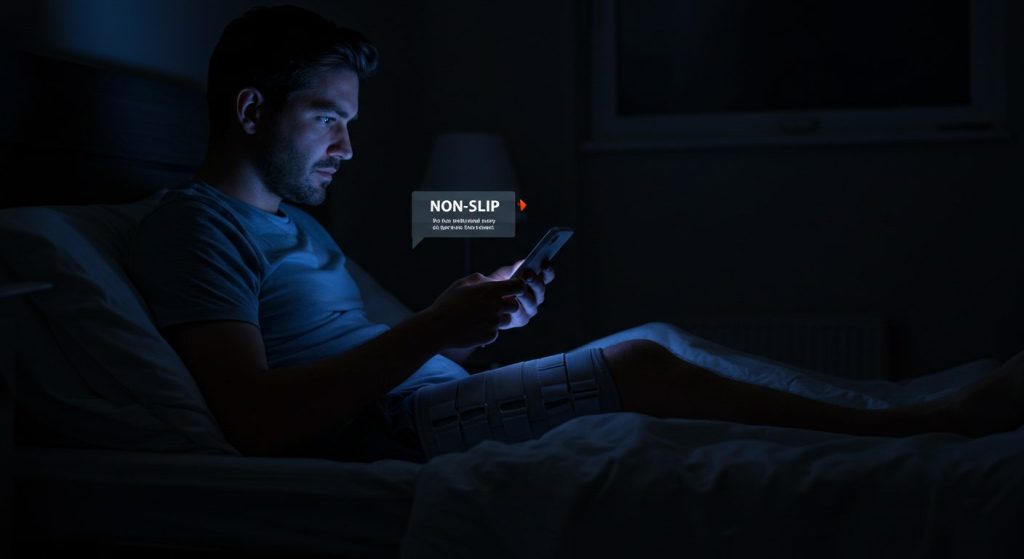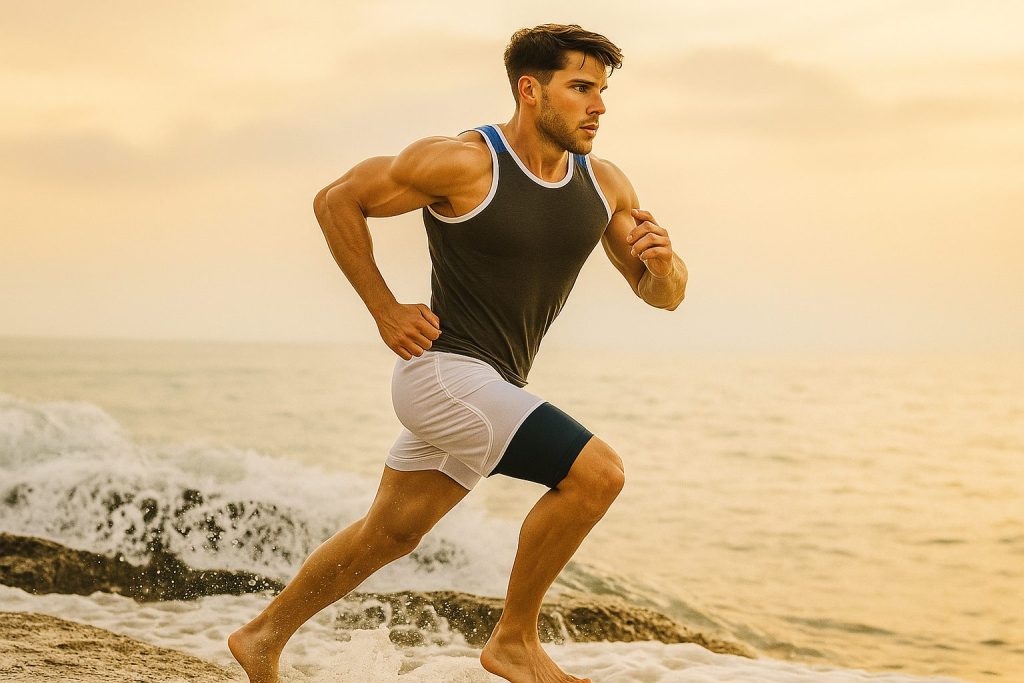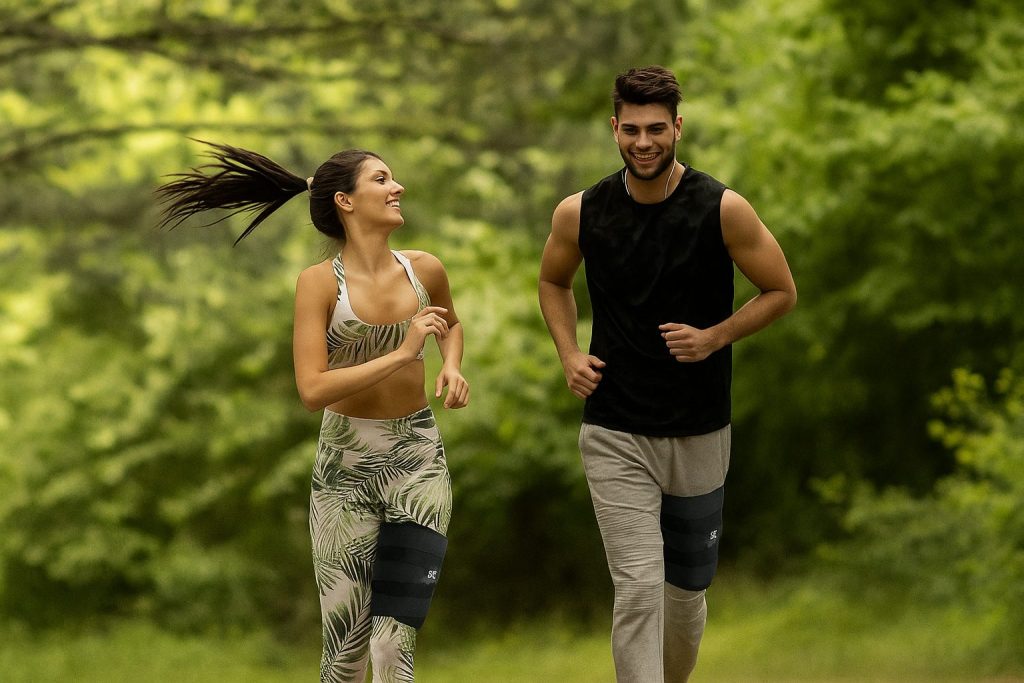🅶🅰🅻🆄🆅
ADVERTORIAL
The Day I Refused to Sit on the Sidelines Again
I thought recurring muscle pain would keep me from the court forever — until I found a way to protect, recover, and move without fear.
By Jacob
It was supposed to be a normal Saturday pickup game. But halfway through the second quarter, I felt that familiar sting ripple through the back of my thigh. My leg stiffened, my pace slowed, and just like that — I was out again.
What hit harder than the pain itself was the frustration: not again. Not another week of ice packs, limping up stairs, and telling my kids, “Sorry, Dad needs to rest today.”
In that moment, I realized I wasn’t just losing games. I was losing confidence in my own body.
I’m 42, a weekend basketball player and full-time dad. The court has always been my escape — my way of staying sharp, social, and healthy. My kids love watching from the sidelines, and I’ve always wanted to show them what it means to stay active, no matter your age.
But these hamstring strains? They weren’t just inconvenient — they were stealing pieces of my life. Even simple things, like walking the dog or carrying groceries, became reminders of what I couldn’t do.
I didn’t need to play professionally. I just wanted to stay in motion, to keep being the dad, teammate, and active person I’d always been.
The toughest part wasn’t the pain — it was the pattern. I’d rest, feel “okay,” push a little, and the back of my thigh would seize again.
I tried everything. First came the cheap elastic sleeves that slid down mid-run. Then came tighter bands that cut off circulation. Another brand promised “breathable fabric,” but within minutes my leg was overheated and itching.
Clinically, it made sense. Hamstring strains are among the most common sports injuries, with recovery times ranging from days to months depending on severity【Cleveland Clinic†source】. Guidelines emphasize rest and compression early, but warn that inactivity alone can slow recovery【Mayo Clinic†source】【Mayo Clinic†source】
What wore me down most was recurrence. Research shows up to one-third of hamstring strains recur within a year, and repeat injuries are often more severe【Narrative Review, BJSM†source】【Longitudinal Football Study†source】
“Every flare chipped away at my confidence. Each game became a gamble, and each walk upstairs a reminder of fragility.”
Evidence also suggests compression garments can modestly aid recovery, particularly reducing soreness and supporting circulation【Systematic Review, Meta-Analysis†source】. Modern care models (PEACE & LOVE) still list compression as a useful tool — but only if it’s applied with the right fit and pressure【BJSM†source】.
The real problem wasn’t compression itself. It was relying on poorly designed supports that slipped, squeezed, or suffocated when I needed them most.
One late night, scrolling with that familiar mix of pain and frustration, I stumbled across something different: a Thigh Brace Support designed specifically for quadriceps and hamstring recovery.
The photos showed athletes mid-stride — not tugging at slipping sleeves. The product promised breathability, adjustability, and — the word that made me pause — non-slip security.
For the first time in months, I felt a flicker of hope. Could this be the support I needed to move without fear?
From the first wear, the difference was clear:
- Adjustable Compression Wrap — Velcro straps let me dial in the perfect fit. Secure without suffocating.
- Breathable Neoprene — Lightweight, sweat-resistant fabric kept me cool through workouts.
- Non-Slip Grip — No more tugging mid-sprint; it stayed in place through every jump and pivot.
- Lightweight & Discreet — Fit under jeans or joggers, supporting me off the court too.
- Unisex Fit — My wife even borrowed it for a morning jog after tweaking her hamstring.
This wasn’t just another brace. It was relief, confidence, and freedom wrapped into one.
Scrolling through reviews, I realized I wasn’t the only one. Weekend athletes, recovering patients, and gym-goers alike praised its balance of support and comfort.
One physical therapist I follow even recommended it for rehab clients, calling it “a smart blend of compression and mobility.” Seeing that gave me confidence I wasn’t just imagining the results.
The first game back, my legs moved freely, and my mind stayed in the moment. No waiting for the sting. No holding back. Just playing.
But the real victory came later that week. Walking my daughter home from school, I realized I hadn’t felt a single twinge climbing the hill. She looked up and said: “You’re fast again, Dad!”
That was the moment I knew this wasn’t just about sports. It was about life.
I’ve learned something: waiting only makes injuries worse. I spent months hesitating, limping, and missing out — all because I didn’t have the right support.
Now, whether I’m on the court, walking the dog, or climbing stairs, I move with trust instead of fear.
If you’ve been sidelined by pain, or you’re tired of braces that slip, itch, or squeeze, this might be your moment.
Because once you’ve felt what it’s like to move without fear, you’ll never want to go back.
🅶🅰🅻🆄🆅
Home / Privacy Policy / TERMS + CONDITIONS / COPYRIGHT @2025 GaLuv. ALL RIGHTS RESERVED
DISCLAIMER: THIS IS AN ADVERTISEMENT AND NOT AN ACTUAL NEWS ARTICLE, BLOG, OR CONSUMER REPORT. The content on this site and the story presented are for promotional purposes only. Any experiences or testimonials featured are illustrative and may not reflect the typical results you achieve with these products. This page may receive compensation for purchases made through links on this site. PRODUCT DISCLOSURE: These utensils are not intended to diagnose, treat, or improve any medical condition. They are designed for everyday kitchen use and enjoyment.
